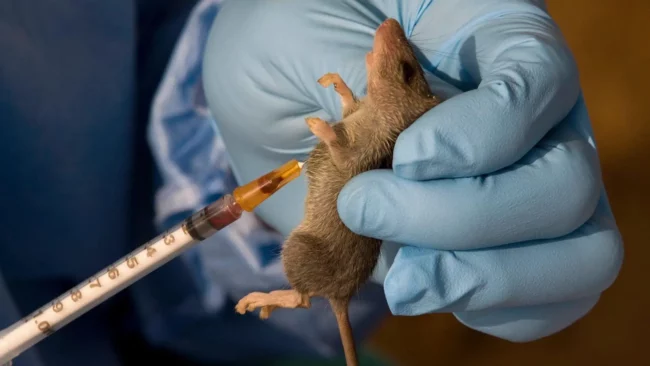The Federal Government has reaffirmed its commitment to the development of a Lassa fever vaccine, emphasising the importance of protecting citizens from the deadly disease.
The Coordinating Minister of Health and Social Welfare, Prof. Muhammed Ali Pate, stated this at a press briefing at the end of the Inaugural Meeting of the Lassa Coalition Governing Entity (LGE). He said, “Lassa fever is a significant public health threat in Nigeria, and the government is committed to doing everything possible to protect citizens from this disease.”
The meeting, which was hosted in collaboration with the West African Health Organisation (WAHO), with support from CEPI, aimed to facilitate country alignment and address learnings from prior public health vaccine development partnerships, as Lassa requires a collaborative partnership model centred around local ownership.
Pate explained that the development of a vaccine is a critical step in this effort, and the government is working closely with local and international partners to support research and development efforts.
“The federal government has been working with the Coalition for Epidemic Preparedness Innovations (CEPI) and other partners to support the development of a Lassa fever vaccine.
“Several candidates are currently in various stages of development, with phase two trials underway in Nigeria, Liberia, and Sierra Leone.”
Pate also noted that the government is supporting research on the surveillance, strains, and epidemiology of Lassa fever, as well as community engagement and education efforts to raise awareness about the disease.
“We recognise that a vaccine is just one part of the solution to combating Lassa fever,” Dr. Pate said. “We must also work to improve our surveillance and response capabilities, as well as educate communities about the risks of the disease and how to prevent it.”
The coordinating minister stressed the importance of collaboration and partnership in the development of a Lassa fever vaccine, noting that the disease affects not just Nigeria, but the entire West Africa region.
“We must work together to address this common threat. We are committed to doing our part to support the development of a Lassa fever vaccine and ensure that it is available to those who need it.”
The Nigerian government’s commitment to Lassa fever vaccine development is a significant step forward in the fight against the disease, which affects thousands of people in West Africa each year.
According to Pate, the government is committed to ensuring that the vaccine is available to all citizens, regardless of their socioeconomic status or geographical location.
“We will work tirelessly to ensure that the vaccine is distributed equitably and that all citizens have access to it,” Dr. Pate said.
The development of a Lassa fever vaccine is a complex process that requires careful testing and evaluation. However, with the Nigerian government’s commitment and support, there is hope that a safe and effective vaccine will be available soon.
“In the meantime, the government is urging citizens to take precautions to prevent the spread of the disease, including avoiding contact with rodents and other animals that may carry the virus.”
“We must all work together to prevent the spread of Lassa fever,” Dr. Pate said. “By taking simple precautions and supporting the development of a vaccine, we can protect ourselves and our loved ones from this deadly disease.”
Also, the CEO of the Coalition for Epidemic Preparedness Innovations, Richard Hatchett, disclosed that the Lassa fever vaccine programme has been a regional effort from its inception in 2018, focusing on countries affected by the disease, with Nigeria being the epicentre due to its high number of cases.
He said that the programme has made significant progress, with trials conducted in Ghana and the first phase two trials currently underway in Nigeria, Liberia, and Sierra Leone.
According to Hatchett, “The ultimate goal of the programme is to test the vaccine across the entire region impacted by Lassa fever. To achieve this, extensive preparatory work has been done to understand the epidemiology of the disease in various regions, including Nigeria, Benin, Guinea, and the West Coast.
“This research has revealed that the disease differs significantly by region and even within Nigeria, where hotspots and areas with lower disease prevalence have been identified.”
“Understanding the epidemiology of Lassa fever is crucial in designing and targeting vaccine trials effectively.
“The programme’s investments have been regional in scope, recognising that Lassa fever is a shared challenge that requires a collaborative approach. By working together, countries affected by the disease can pool their resources and expertise to develop a vaccine that benefits the entire region.”
“The development of a Lassa fever vaccine is critical in combating the disease, which affects thousands of people in West Africa each year.”
“With the ongoing trials and research efforts, there is hope that a safe and effective vaccine will be available soon, saving countless lives and reducing the economic burden of the disease.”
READ MORE FROM: NIGERIAN TRIBUNE
